PI3K/Akt/mTOR Signaling
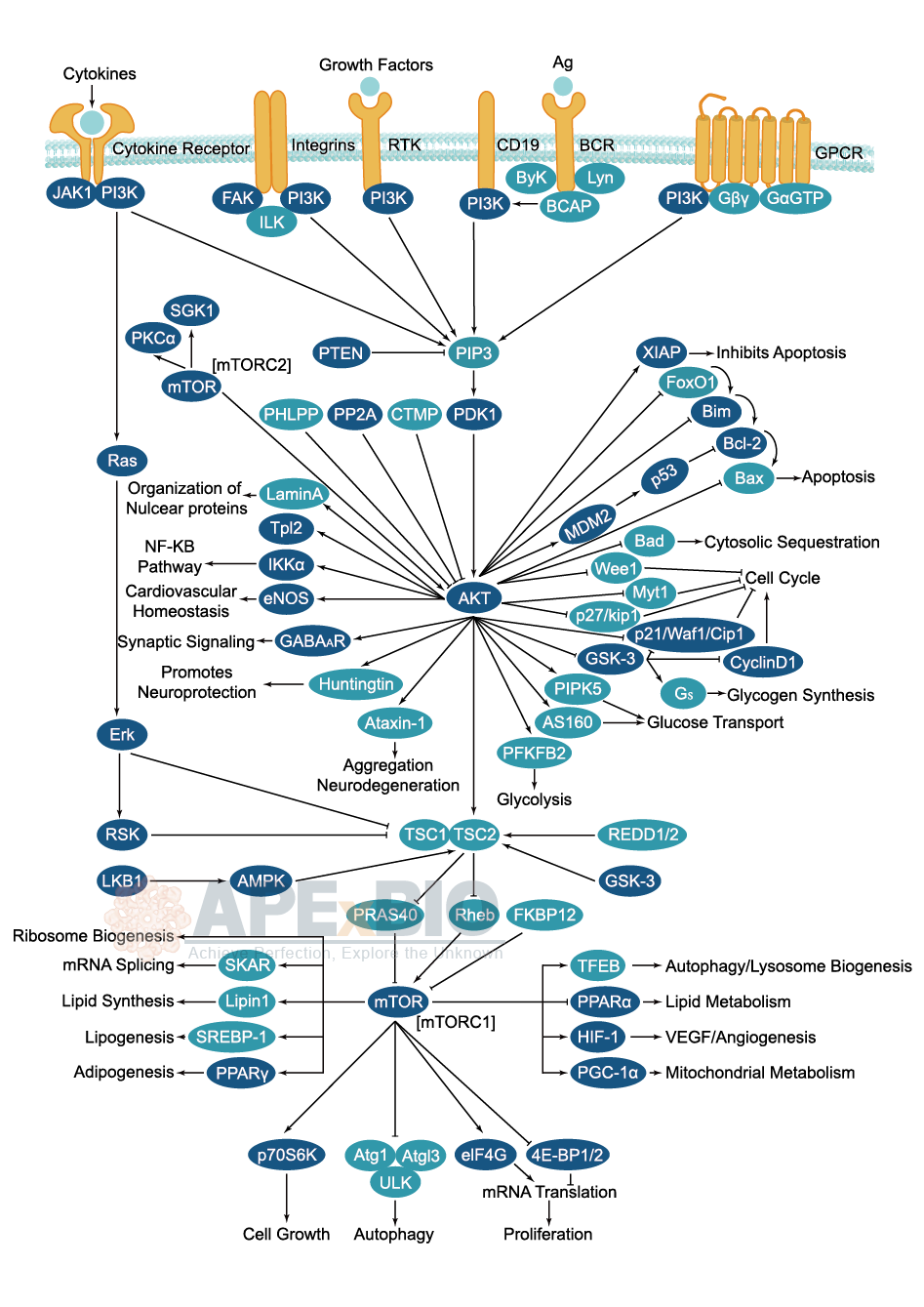
The PI3K/Akt/mTOR signaling pathway is a key regulator in growth, survival, cell cycle proliferation, protein synthesis and glucose metabolism. Growth factors, hormones, and cytokines can activate this pathway by binding their cognate receptor tyrosine kinase (RTK), cytokine receptor, or GPCR, resulting in the activation of lipid kinase PI3K which produces PIP3 at the plasma membrane.
The binding of PIP3 translocates Akt to cell membranes, enables Akt activation through phosphorylation at Thr308 mediated by phosphoinositide dependent kinase 1 (PDK1). In addition, Akt is phosphorylated at Ser473 by the mTOR-rictor complex, mTORC2. PTEN is a negative regulator of Akt signaling that reverses the function of PI3K by removing 3’-phosphate groups. Akt activity is also negatively regulated by the phosphatases PP2A and PHLPP. Akt propagates its signal to affect DNA transcription, cell cycle and apoptosis. Akt can activate mTOR directly by phosphorylation or indirectly, by phosphorylation and inactivation of mTOR inhibitor TSC2 and PRAS40. Together these mechanisms stimulate cell growth and G1 cell cycle progression through signaling via p70 S6 Kinase and inhibition of 4E-BP1. Defects in PI3K/AKT/mTOR signaling are implicated in cancer, diabetes and cardiovascular disease etc.
-
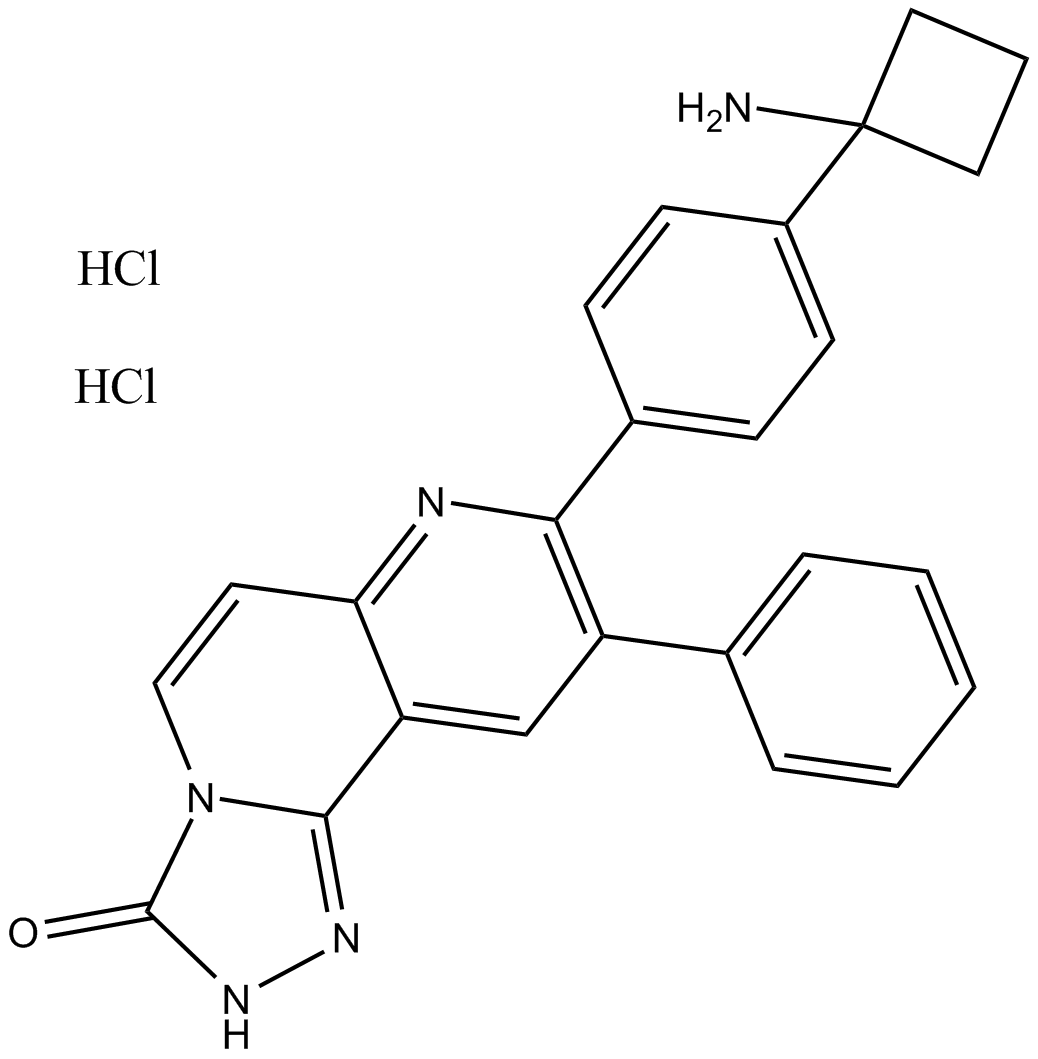 A3010 MK-2206 dihydrochloride21 CitationTarget: AktSummary: Akt1/2/3 inhibitor
A3010 MK-2206 dihydrochloride21 CitationTarget: AktSummary: Akt1/2/3 inhibitor -
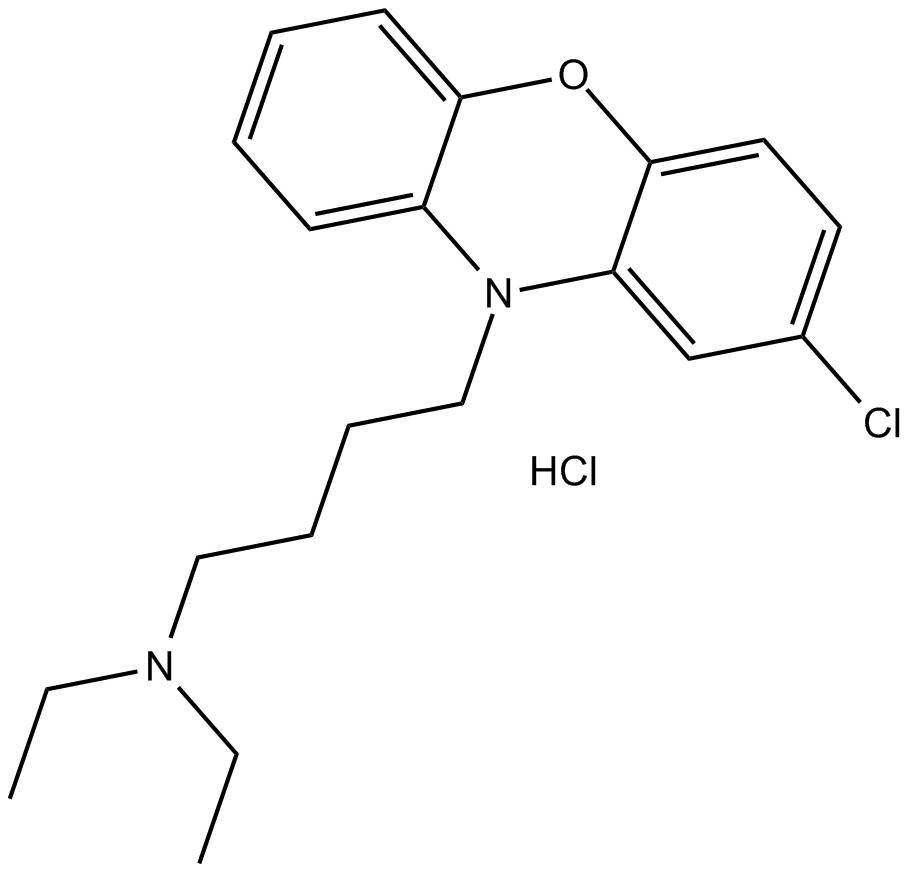 B7105 10-DEBC hydrochlorideTarget: AktSummary: Akt inhibitor
B7105 10-DEBC hydrochlorideTarget: AktSummary: Akt inhibitor -
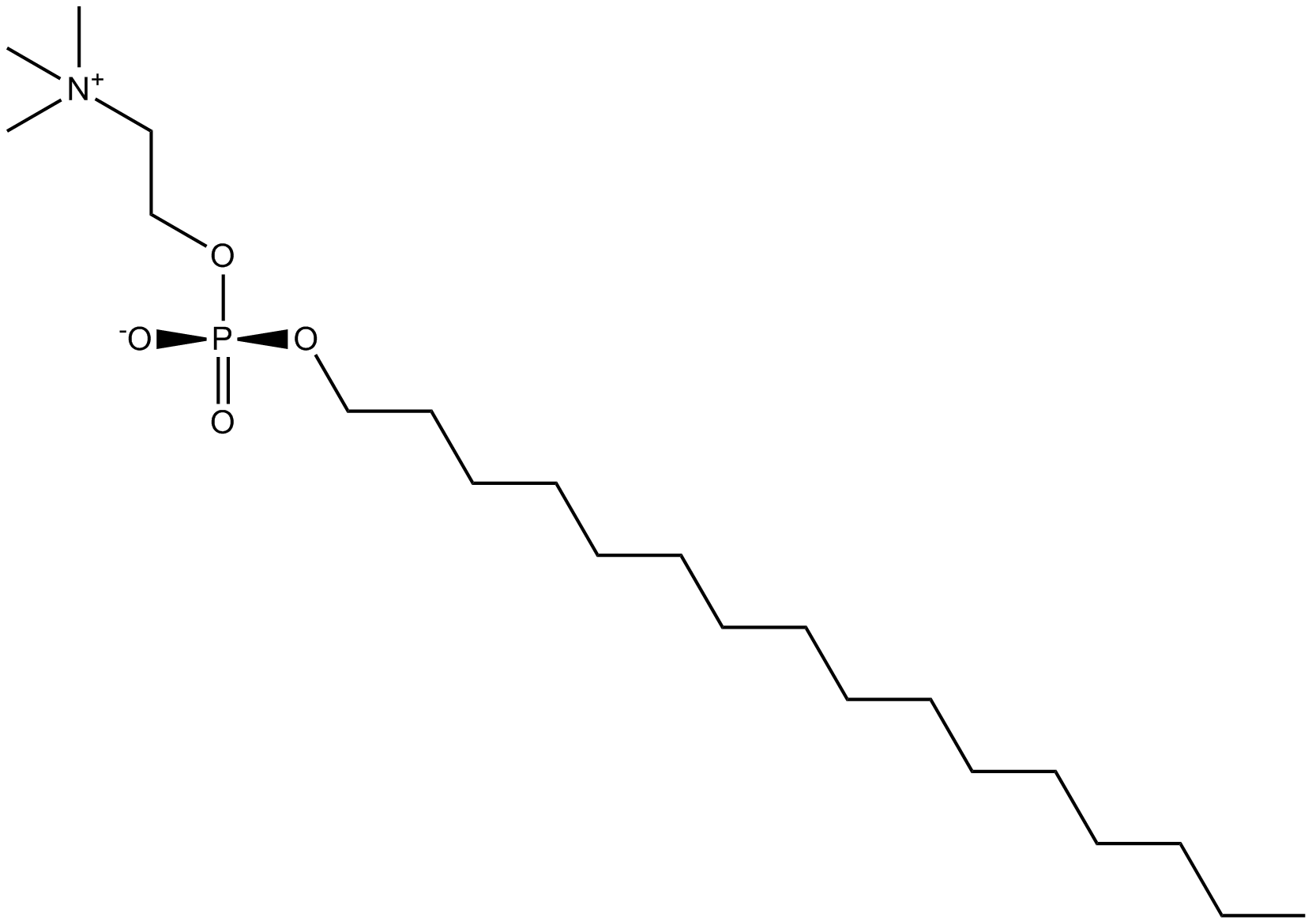 B1371 MiltefosineTarget: PI3KSummary: PI3K/Akt inhibitor
B1371 MiltefosineTarget: PI3KSummary: PI3K/Akt inhibitor -
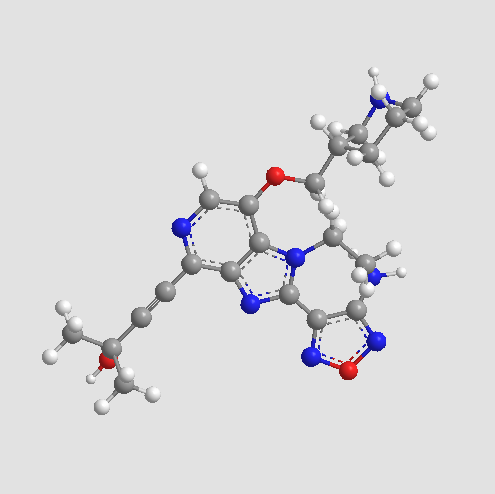 A5072 GSK690693Target: Akt|PKC|PKG|PKA|PrkSummary: Pan-AKT inhibitor,ATP-competitive and potent
A5072 GSK690693Target: Akt|PKC|PKG|PKA|PrkSummary: Pan-AKT inhibitor,ATP-competitive and potent -
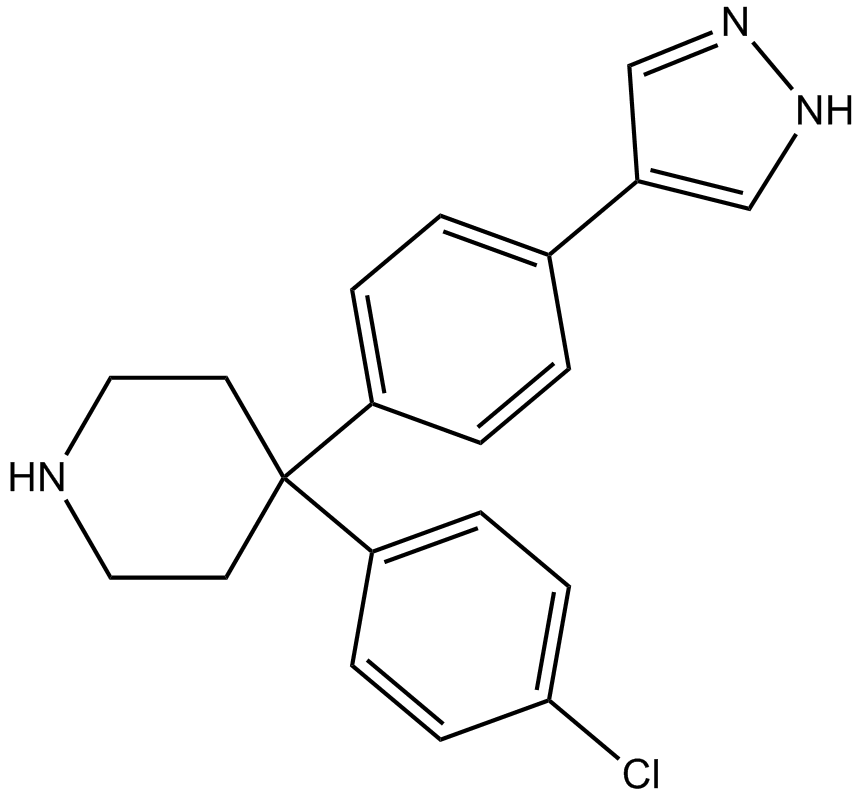 A5653 AT7867Target: Akt|PKA|p70 rskSummary: Akt1/2/3 and p70S6K/PKA inhibitor
A5653 AT7867Target: Akt|PKA|p70 rskSummary: Akt1/2/3 and p70S6K/PKA inhibitor -
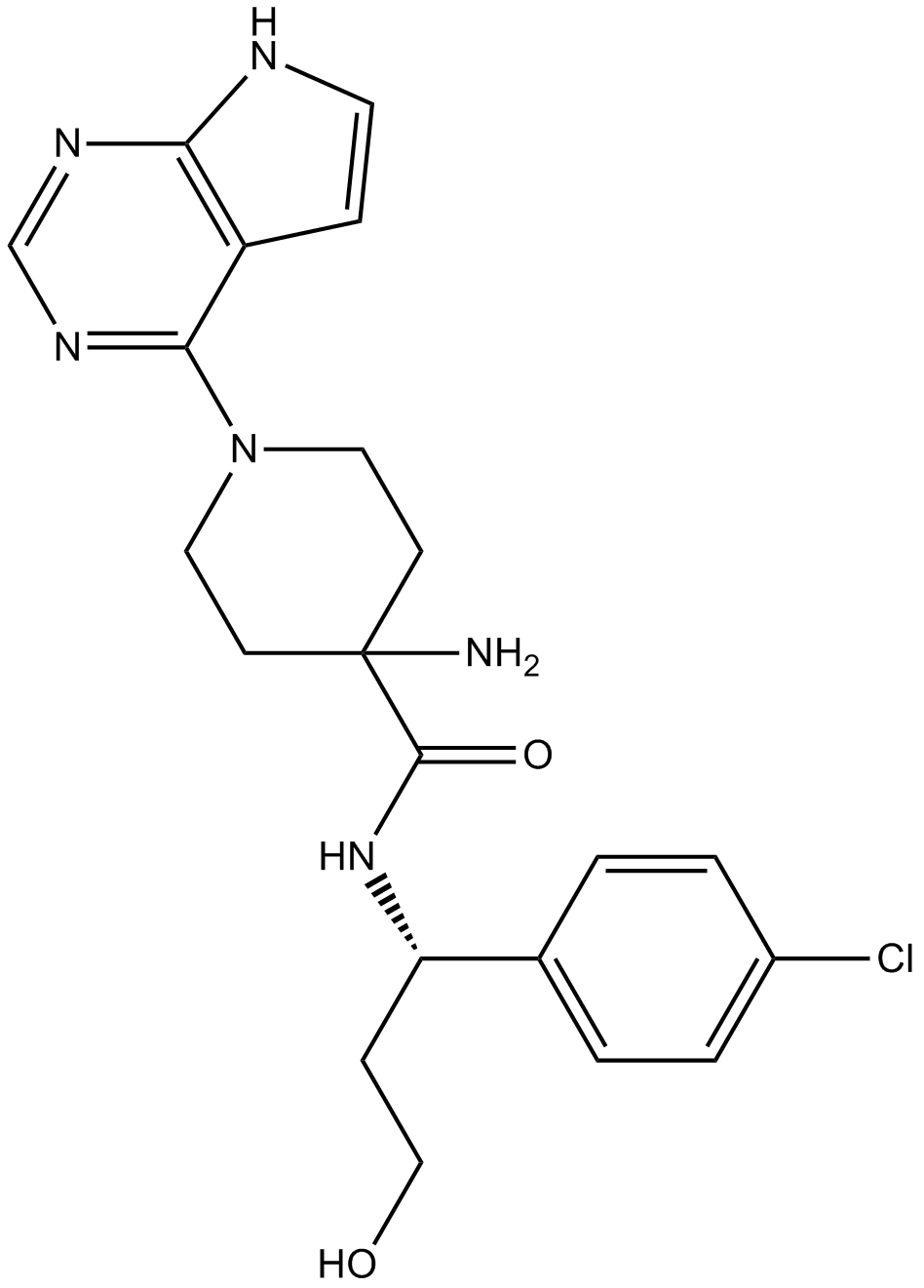 A1387 AZD53633 CitationTarget: AktSummary: AKT inhibitor,pyrrolopyrimidine derived
A1387 AZD53633 CitationTarget: AktSummary: AKT inhibitor,pyrrolopyrimidine derived -
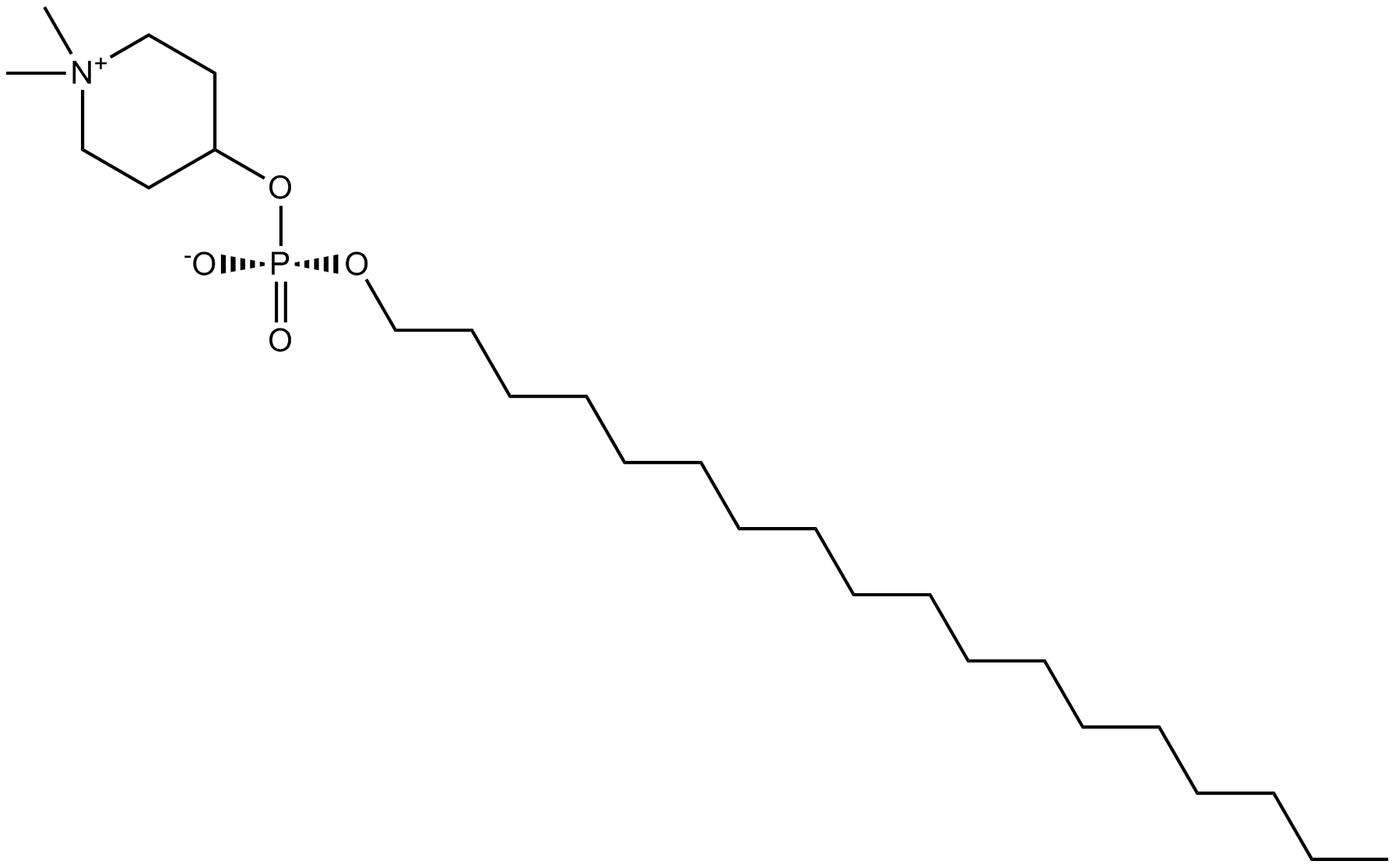 A8309 Perifosine1 CitationTarget: AktSummary: Akt inhibitor
A8309 Perifosine1 CitationTarget: AktSummary: Akt inhibitor -
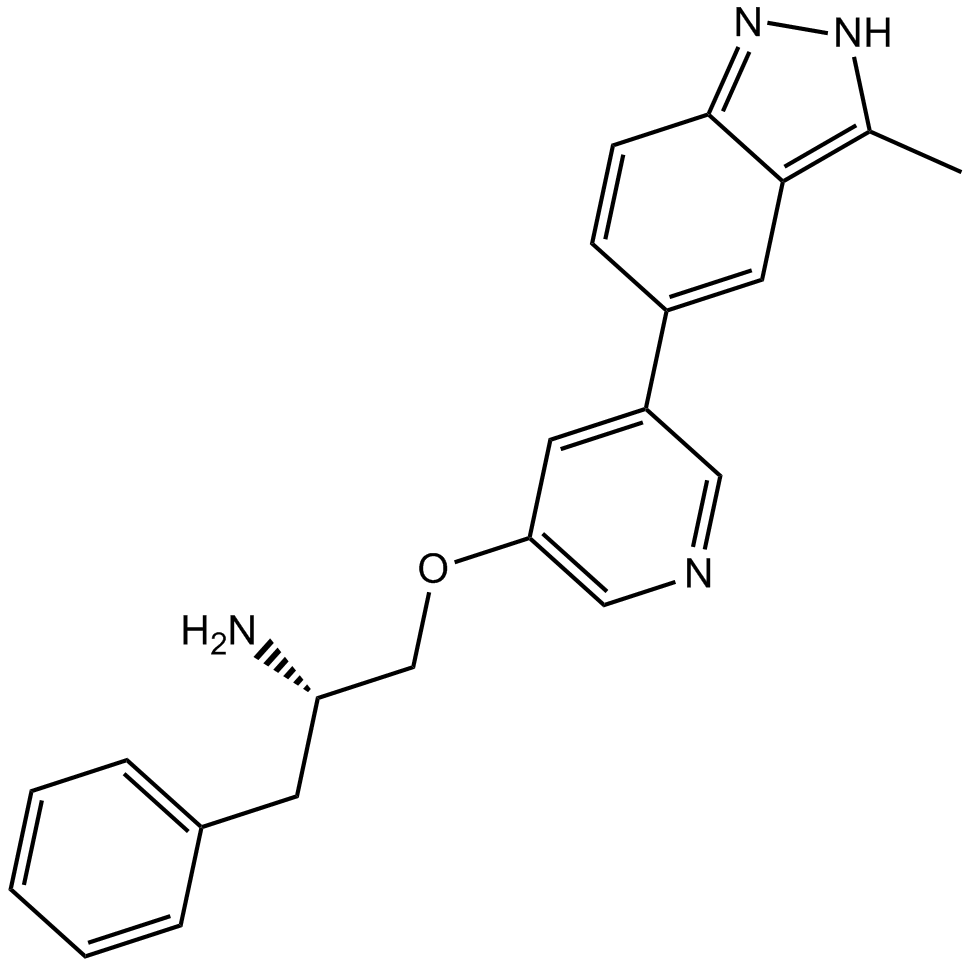 A8616 A-674563Target: Cyclin-Dependent Kinases|Akt|GSK-3|ERK|PKC|PKA|RSKSummary: Akt1/PKA/CDK2 inhibitor,potent and selective
A8616 A-674563Target: Cyclin-Dependent Kinases|Akt|GSK-3|ERK|PKC|PKA|RSKSummary: Akt1/PKA/CDK2 inhibitor,potent and selective -
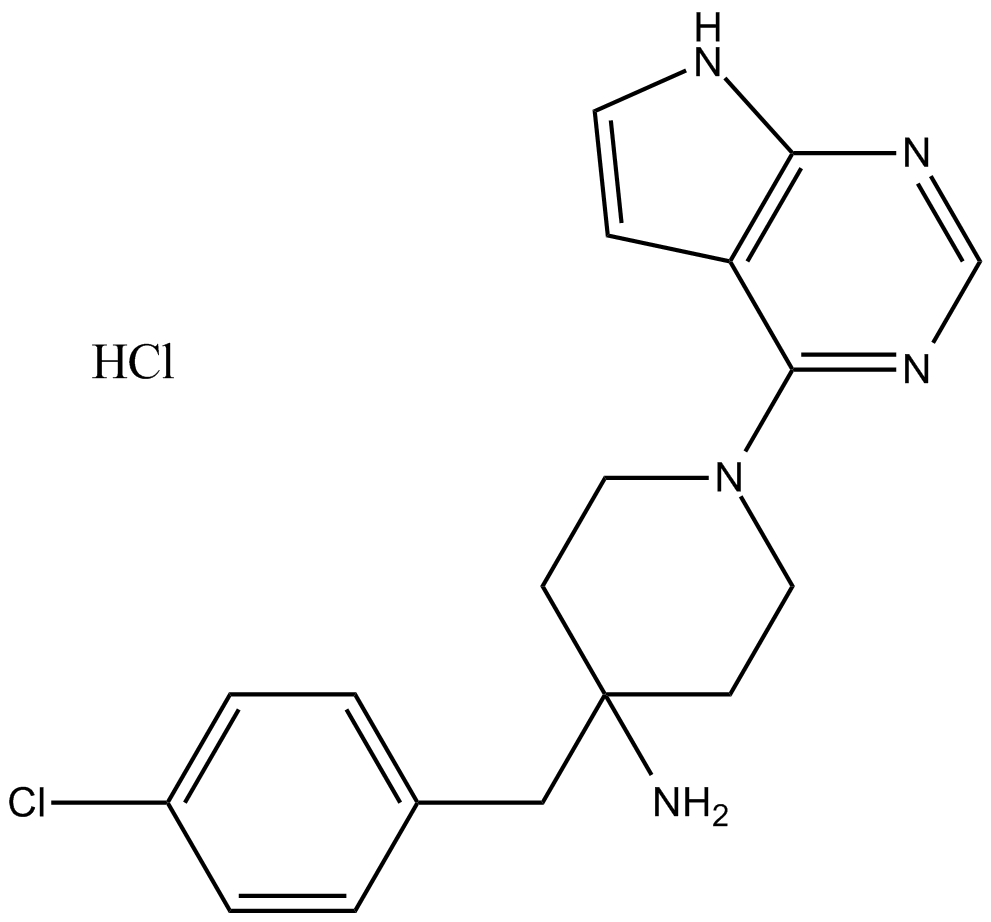 A8617 CCT128930 HClTarget: AktSummary: AKT inhibitor
A8617 CCT128930 HClTarget: AktSummary: AKT inhibitor

